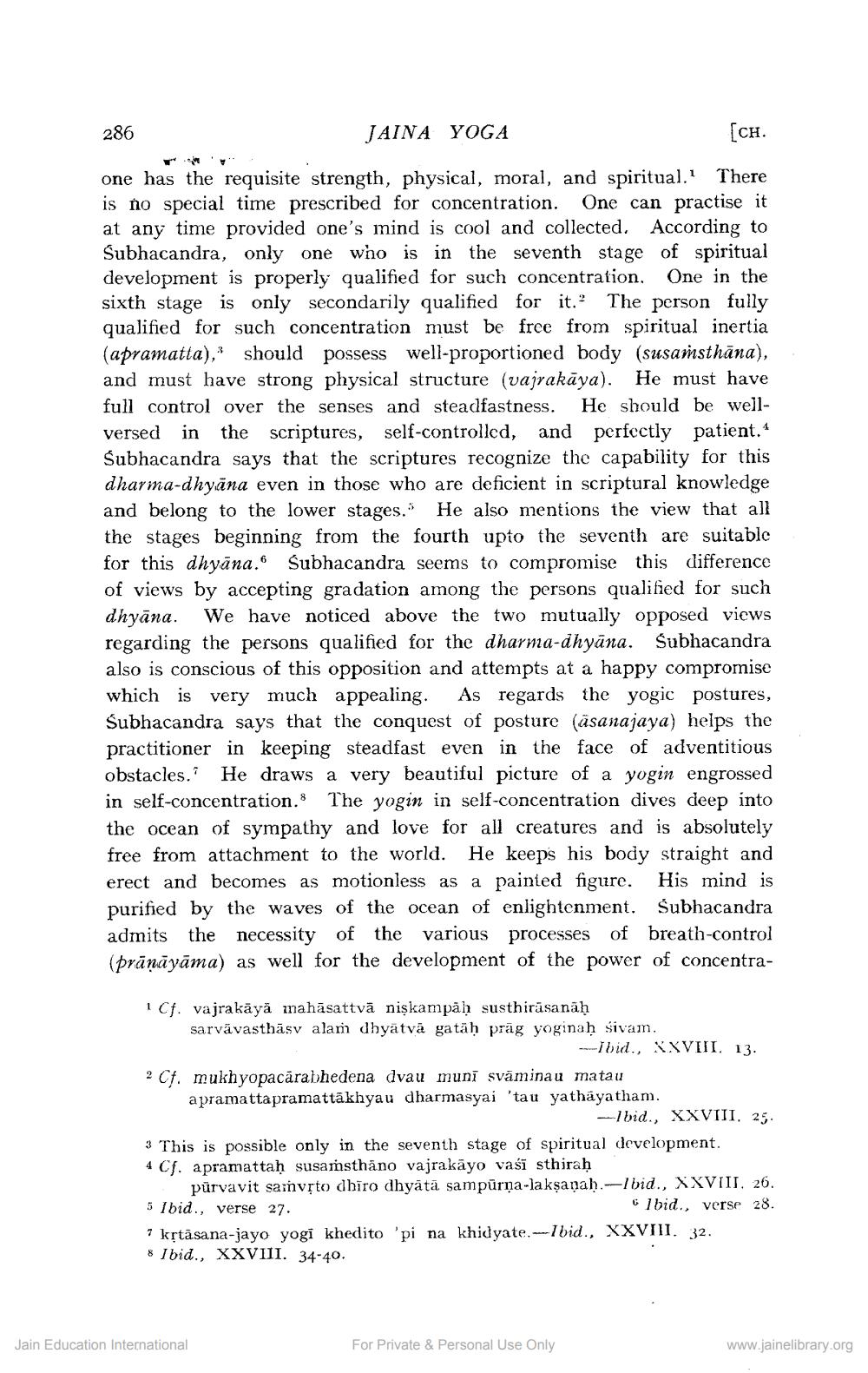________________
286
JAINA YOGA
[CH.
one has the requisite strength, physical, moral, and spiritual.' There is no special time prescribed for concentration. One can practise it at any time provided one's mind is cool and collected. According to Subhacandra, only one who is in the seventh stage of spiritual development is properly qualified for such concentration. One in the sixth stage is only secondarily qualified for it. The person fully qualified for such concentration must be free from spiritual inertia (apramatta), should possess well-proportioned body (susamsthāna), and must have strong physical structure (vajrakāya). He must have full control over the senses and steadfastness. He should be wellversed in the scriptures, self-controlled, and perfectly patient.* Subhacandra says that the scriptures recognize the capability for this dharma-dhyāna even in those who are deficient in scriptural knowledge and belong to the lower stages. He also mentions the view that all the stages beginning from the fourth upto the seventh are suitable for this dhyāna.. Subhacandra seems to compromise this difference of views by accepting gradation among the persons qualified for such dhyāna. We have noticed above the two mutually opposed views regarding the persons qualified for the dharnia-dhyāna. Subhacandra also is conscious of this opposition and attempts at a happy compromise which is very much appealing. As regards the yogic postures, Subhacandra says that the conquest of posture (äsanajaya) helps the practitioner in keeping steadfast even in the face of adventitious obstacles. He draws a very beautiful picture of a yogin engrossed in self-concentration. The yogin in self-concentration dives deep into the ocean of sympathy and love for all creatures and is absolutely free from attachment to the world. He keeps his body straight and erect and becomes as motionless as a painted figure. His mind is purified by the waves of the ocean of enlightenment. Subhacandra admits the necessity of the various processes of breath-control (prānāyāma) as well for the development of the power of concentra
I Cf. vajrakāyā mahāsattvä niskampah susthiräsanāḥ sarvāvasthāsv alam dhyatvā gatāḥ prāg yoginaḥ sivam.
--Ibid., XXVIII. 13. ? Cf. mukhyopacārabhedena dvau muni svāminau matau apramattapramattakhyau dharmasyai 'tau yathayatham.
-Ibid., XXVIII. 25. 3 This is possible only in the seventh stage of spiritual development. 4 CJ. a pramattaḥ susamsthāno vajrakäyo vasi sthirah
purvavit sarnvrto dhiro dhyātā sampurņa-laksanah.-Ibid., XXVIII. 26. 5 Ibid., verse 27.
lbid., verse 28. ? kệtāsana-jayo yogi khedito 'pi na khidyate. Ibid., XXVIII. 32. 8 Ibid., XXVIII. 34-40.
Jain Education International
For Private & Personal Use Only
www.jainelibrary.org




